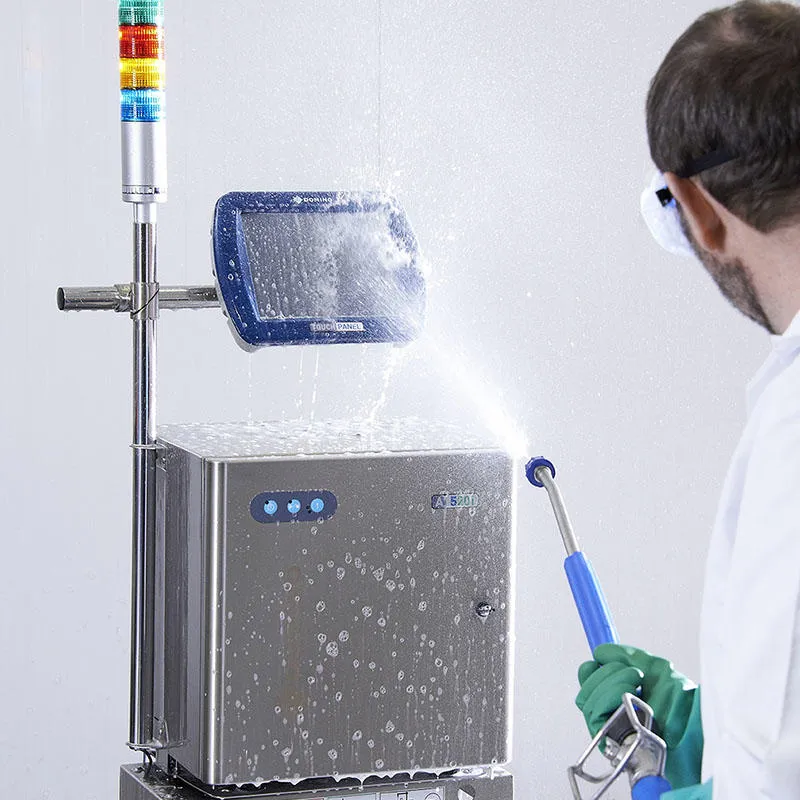As a production manager, the protection of machinery and equipment is a key aspect and concern. In challenging environments with moisture and dust, the risks of breakdown are higher and so is the need for equipment with high IP ratings. Read on to discover what you need to be aware of.
In this second post, we look closer at the implications of IP ratings on coding and marking equipment, and their impact for decision-makers. We build on our first post, which covered the basics: What are IP ratings and what do they mean?
In the production environment for a typical beverage application (alcoholic or soft drinks) it’s likely equipment will need to be washed down as part of the sanitization process – so it will often be wet. What is the best IP rating to choose for such an environment?

Clearly the coder must be able to be washed down, usually with a hose or pressure washer, so a higher second digit in the IP rating is desirable. This means IPX5 would often be specified. This IP rating is fine to protect the coder against wash-downs, but long-term implications of this wet environment for the coder also need to be considered.
Airborne contamination such as moisture, sugar and syrup will build up over time inside the coder as a result of the air blown through it to cool the electronics. This often causes faults and/or poor reliability; therefore, a higher moisture resistance IP rating generally proves more beneficial to a coder in an aggressive wet environment.

Protecting environments from ingress is key to long-term reliability and Overall Equipment Effectiveness (OEE); sealing electronics is one way to achieve a higher IP moisture rating. Keeping cool then becomes key to the reliability of the coder and an appropriate cooling system will need to be deployed.
Now imagine the opposite scenario, where a coder is in a dusty beverage environment, such as a tea or coffee factory. Waterproofing is likely to be less important than taking dustproofing into consideration. The IP rating charts show a rating of 5 or 6 as the best fit, but the judgement call needs to be between dust-protected and dust-tight. It is most likely that in all but the dustiest applications, the dust-protected option will give the desired level of protection – making it imperative to keep the system’s air filter clean at all times, to protect the printer.
This about wraps up our two-part series on IP ratings. If you want to more details, be sure to read about our new Ax-Series. Did you like this post? Be sure to comment below and let us know your thoughts!